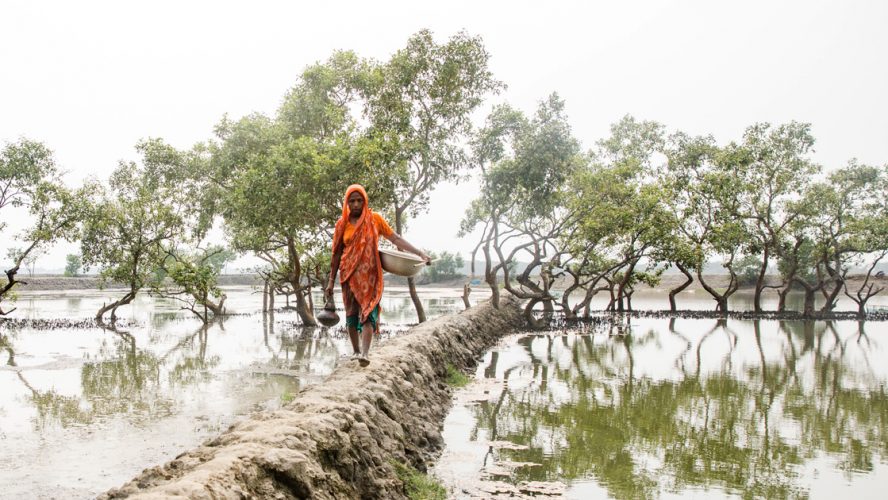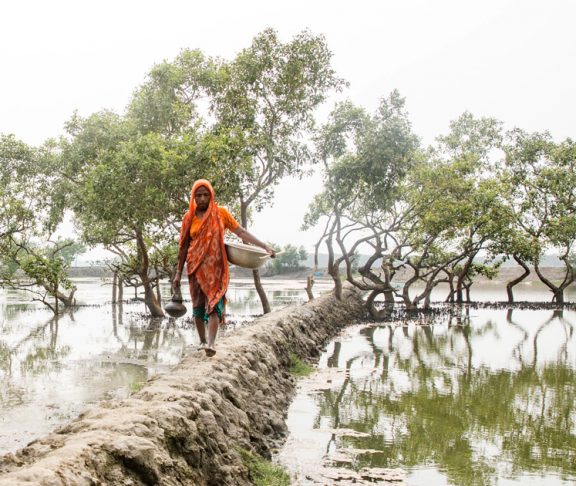
Tim Wainwright
Chief Executive UK, WaterAid
Image: Woman returning home after collection of shrimp larva. Majority of people here are below poverty line and their main occupations are agriculture, fishing, fish farming and daily labor in Kathamari, Shyamnagar, Satkhira, Bangladesh. September 2018.
One in ten people globally do not have clean water close to home. One in four people do not have a toilet. We must step up to the challenge of providing safe water and toilets to everyone, everywhere, by 2030.
Everyone understands that water is vital for life – but it is also so much more than that. Having a safe and reliable water supply not only saves lives but can also change lives forever.
Unless you are able to count on having clean water to drink close to home, it is virtually impossible to escape poverty. Without toilets that protect your family and community, you will spend more time sick and caring for those with waterborne diseases, making it harder to build a brighter future.
These three basic services of clean water, decent toilets and good hygiene underpin all progress in development and are at the heart of what we do at WaterAid.
One child under five dies every two minutes from diarrhoea caused by dirty water and lack of sanitation.
Yet in 2020, one in ten people do not have even the most basic supply of clean water close to home, and a staggering two billion people do not have a decent toilet.
This has a huge impact on the most vulnerable in society. Women and girls often shoulder the burden and waste hours every day collecting water, thus missing out on the opportunity to go to school or earn a living.
Without a plumbed indoor toilet, women and girls are forced to sneak outside in the dark, which not only impacts on their dignity, but puts them at risk of harassment or attack.
Girls are more likely to miss school while on their periods when their schools do not have a private, safe toilet. And, tragically, one child under five dies every two minutes from diarrhoea caused by dirty water and lack of sanitation.
The first line of defence
Having access to resilient water services is one of the first lines of defence against climate change. This means being able to drink safe water every day, whatever the weather.
As the warming planet increases pressure on already scarce water resources, communities which lack access to safely managed water supplies will not be able to respond to the unpredictable and severe impacts of climate variability.
Increasing global temperatures threaten to reverse positive gains made in improving access to clean water and decent sanitation over the previous decades – and risk trapping people in poverty for many years to come.
We still have a chance to change the situation.
Developed countries have a moral responsibility to reduce their use of fossil fuels much more quickly. But we must also act now to protect communities that are already fighting the impact of climate change.
The single most important thing we can do to help people face these dangers is to ensure that everyone everywhere has access to safely managed water and sanitation.
This is not only a human right, but also forms part of Sustainable Development Goal (SDG) 6, which aims to bring clean water and sustainable sanitation to everyone, everywhere, by 2030.
But time is running out. Far too little is being done, by either national governments or donors, to acknowledge the importance of clean water as a climate change defence and make the urgent, long-term investments needed to help the most vulnerable people in the world.

